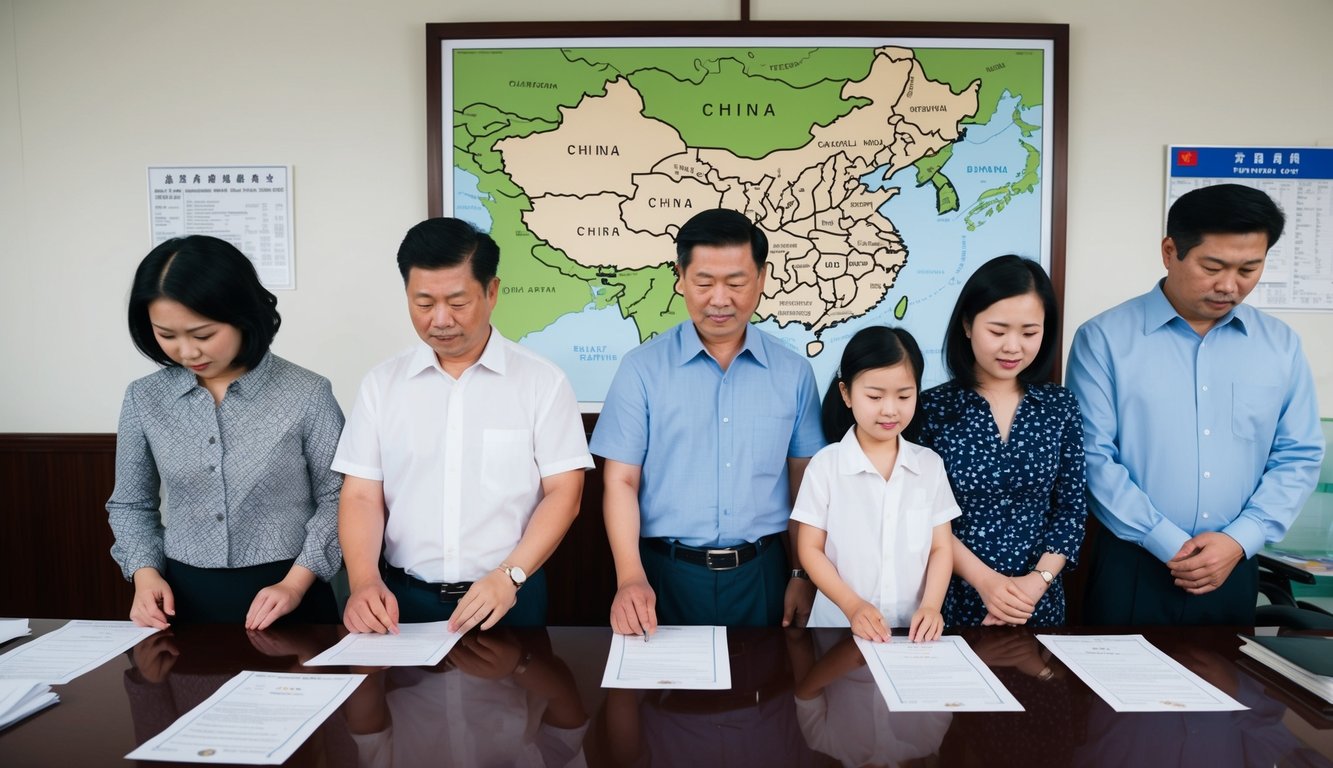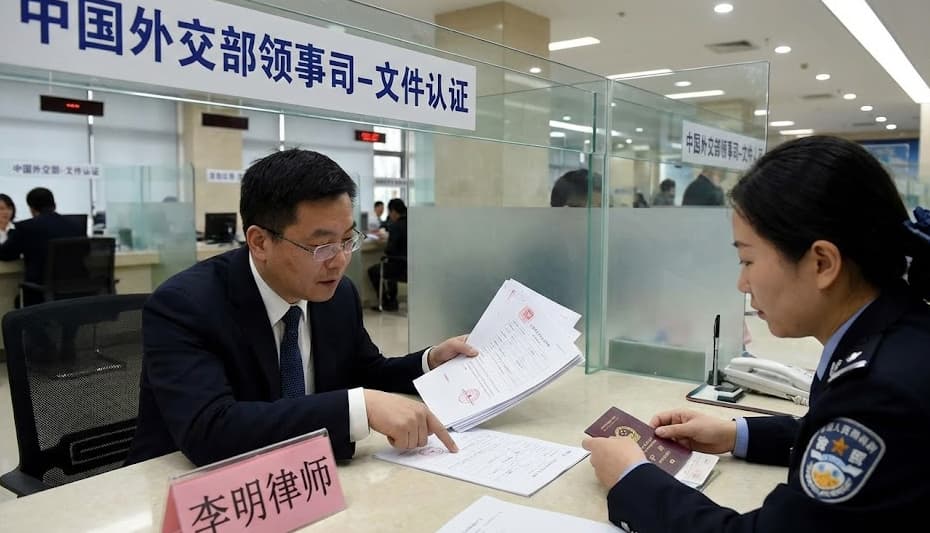Adoption in China has changed dramatically in the past year. For decades, thousands of families welcomed Chinese children into their homes, but as of August 28, 2024, China closed its international adoption program to most foreigners.
Now, only close relatives can adopt Chinese children, leaving many hopeful parents wondering what options remain.
What happens to the children still in Chinese orphanages? They'll stay there, as China believes domestic families should raise these children. This major shift affects countless families who dreamed of adopting from China.
If you're exploring international adoption, you'll need to consider other countries instead. Read on to learn about the current situation and what it means for your adoption journey.
Current State of China Adoptions
China's approach to international adoptions has undergone significant changes recently. The country has announced a major policy shift that affects families worldwide who were hoping to adopt Chinese children.
Recent Policy Changes and Requirements
On August 28, 2024, China's Ministry of Civil Affairs announced the end of most intercountry adoptions. This change marks a dramatic shift from China's previous position as one of the leading countries for international adoptions.
This new policy leaves many American and other foreign families with pending applications in limbo. These families were already in the process of adopting a child from China when the announcement came.
The only exceptions to this ban are very limited. Many children who were already matched with families may now remain in orphanages instead of joining their waiting families abroad.
This policy change came as a surprise to many adoption agencies and prospective parents. It affects hundreds of children who had potential families waiting for them.
Who Can Adopt from China?
Currently, almost no one from outside China can adopt Chinese children. The 2024 policy effectively closes the door on foreign adoptions that had been ongoing for decades.
Before this change, China had specific requirements for adoptive parents. These typically included:
- Age requirements (usually between 30-50)
- Stable marriage (at least 2 years)
- No serious health issues
- Financial stability
- Clean criminal record
Now these requirements are mostly irrelevant for international families since adoptions have been suspended. This leaves domestic adoption as the primary path for Chinese orphans.
Chinese officials have not provided clear details about whether certain exceptions might exist or if any pending adoptions will be allowed to complete. For families who were in the process, this uncertainty is especially difficult.
The China Adoption Process
The China adoption process involves several detailed steps, significant documentation, and financial planning. While international adoptions from China will end on August 28, 2024 (except in certain cases), understanding the historical process remains valuable.
Step-By-Step Application Procedure
- First, you need to choose an adoption agency that's licensed to work with China. This agency will guide you through the entire process. The agency must be approved by both U.S. and Chinese authorities.
- Next, you'll complete a home study with a social worker. This involves multiple visits to your home, background checks, and interviews. China has specific eligibility requirements - married couples must be under 55, while single females must be under 50.
- After your home study is approved, you'll submit your dossier to China's adoption authority. For healthy child adoptions, the waiting period could be up to 6 years.
- However, if you choose the Waiting Child program for children with medical needs, the process can be much faster. Once matched with a child, you'll review their file and decide whether to proceed.
Required Documentation and Timeline
Your adoption dossier requires many important documents:
- Birth certificates
- Marriage certificate (for couples)
- Financial statements
- Employment verification
- Medical exams
- Police clearances
- Reference letters
- Home study report
All documents must be notarized, authenticated, and translated into Chinese. This preparation phase typically takes 3-6 months to complete. After submission, the waiting period varies greatly. For the Waiting Child program, you might wait 12-18 months.
For healthy child adoptions, the wait has extended to several years. Once you receive a match, you'll need to submit additional paperwork and prepare for travel. Most families spend about 2 weeks in China completing the adoption.
Costs and Financial Considerations
The total cost for adopting from China typically ranges from $30,000 to $40,000. Many employers offer adoption assistance benefits. You might also qualify for the Federal Adoption Tax Credit, which can offset expenses.
Some families use adoption grants or loans from organizations that support adoption. It's important to budget for post-adoption costs too, including medical care and possible therapy services.
Creating a detailed financial plan early in the process helps manage the significant investment adoption requires.
Adoption in China requires legal expertise. Our guide explains when you need a family lawyer to handle documentation and represent your interests. Read our article, Family Lawyers in China: Expert Legal Advice and Services for guidance on finding the right legal support.
Special Programs and Options
China offers several alternative pathways for families interested in adoption. These programs focus on children with specific needs or circumstances who might otherwise wait longer for permanent homes.
China's Waiting Children and Special Needs Programs
China's Special Focus Adoption Program is one of the most significant options for families. This program helps find homes for children with medical conditions, developmental delays, or other special needs.
Single women are eligible to adopt through this program, which has different guidelines than the standard process. The wait time for this program is typically shorter than for non-special needs adoptions.
Families must meet certain income requirements - at least $10,000 annually per household member. Children in this program may have conditions ranging from minor, correctable needs to more complex medical situations.
Many families report that their child's condition is either less severe than described or responds well to treatment in the United States.
Older Child Adoption Opportunities
Adopting older children (typically ages 5+) is another important option within China's adoption system. These children often wait longer for families because many prospective parents prefer to adopt infants or toddlers.
Older child adoption comes with unique considerations. You'll need to prepare for potential language barriers, cultural adjustment, and possible emotional challenges related to the child's awareness of their adoption.
Some agencies specifically focus on matching older children with compatible families. These programs often provide additional support services to help with transition and adjustment issues.
Families who adopt older children frequently note the rewards of helping a child who might otherwise grow up without a permanent family. Your adoption agency can provide resources and training to help you prepare for the specific needs of an older adopted child.
Legal Requirements and Travel

Adopting from China involves navigating specific legal frameworks from both countries and making careful travel preparations. Understanding these requirements early in your process will help avoid delays and complications.
US and Chinese Legal Frameworks
China is a party to the Hague Adoption Convention, which means your adoption must follow these international standards. You must work with an authorized adoption agency to complete your process.
The Chinese government has specific eligibility requirements you must meet. Some applicants may qualify for exceptions, but you'll still need to satisfy all Hague Convention requirements.
The US State Department oversees the American side of international adoptions. They verify that all adoptions comply with both US immigration law and international agreements.
Your child will receive an IH3 visa regardless of whether one or two parents travel to China. This special immigrant visa is specifically for Convention adoptions.
Preparing for Your Adoption Trip to China
At least one parent must travel to China to complete the adoption. Most families stay for 12-15 days during their adoption trip.
Only one trip is necessary if you've been approved by both US and Chinese governments before traveling. This helps streamline the process.
Before departure, gather these important items:
- Your passport (valid for at least 6 months)
- Chinese visa
- Adoption approval documents
- Cash for expenses in China
- Comfortable clothing for various weather conditions
Prepare for your return by understanding post-adoption requirements. China requires reports at 6 months, 12 months, and 2 years after adoption.
These reports help maintain good relations with Chinese authorities.
Post-Adoption Support
After adopting a child from China, your family will need ongoing support to meet requirements and help your child connect with their heritage. China has specific rules about reporting back on your child's progress, and families often seek resources to maintain cultural connections.
Required Reports and Documentation
China requires you to submit post-adoption reports for five years after your adoption. During the first two years, you need to send reports every three months.
These reports must include photos of your child and details about their well-being. The reports should describe:
- Your child's health and growth
- School performance
- Relationships with teachers and classmates
- Family adjustment
You can use forms provided by your adoption agency to help with this process. Agencies like Holt International and Madison Adoption Associates offer submission forms to make reporting easier.
Cultural Resources and Identity Support
Helping your child connect with their Chinese heritage is an important part of post-adoption support. Many agencies offer services designed specifically for this purpose.
Popular resources include:
- Language classes for kids to learn Mandarin
- Cultural celebrations like Chinese New Year events
- Heritage camps where adoptees can meet others with similar backgrounds
- Books and toys that reflect Chinese culture
These tools help your child develop a positive sense of identity. Learning about their birth country can answer questions they might have as they grow up.
Some agencies even organize homeland tours when children are older. These trips let families visit China together and can be powerful experiences for adoptees.
Confused about adoption versus guardianship in China? Guardianship may offer an alternative when adoption isn't possible. Explore our full article about Guardianship in China to determine which path suits your family's needs.
Domestic Adoption Within China
China has a long history of domestic adoption practices that continue to evolve. Recent changes have made adoption more accessible for Chinese citizens, allowing more orphaned children to find permanent homes within their birth country.
Process for Chinese Nationals and Residents
If you're a Chinese citizen looking to adopt, you must meet specific requirements. You need to be at least 30 years old and have no criminal record.
Your health status and financial stability will be carefully evaluated.
Starting in 2025, childless couples can adopt up to two children, a change from previous policies. If you already have one biological child, you can adopt one more child. The adoption process typically involves:
- Initial application to local Civil Affairs Bureau
- Home study assessment
- Matching with a child
- Court approval
- Post-adoption visits
Orphanages across China work with government agencies to place children. Many kids in these facilities have special needs or are older children.
Wait times vary based on your location and the child's age and health. Younger, healthy children usually have longer wait lists. You'll need to prepare documents including:
- ID cards
- Marriage certificate
- Health certificates
- Proof of income
- Housing information
The government has recently worked to make domestic adoption more efficient. Processing times have been cut and barriers for Chinese families reduced.
Conclusion
China's adoption rules have changed big time! Now, only relatives can usually adopt Chinese children. If you're one of the lucky few who qualify, you'll need to understand all the steps, paperwork, and costs involved.
The journey isn't easy, but with the right information, you can navigate this path successfully. Don't try to figure it all out alone! Contact China Legal Experts today for personalized guidance on your adoption journey. Our lawyers will help you understand if you qualify and walk you through every step of the process.
Frequently Asked Questions
Why is China no longer allowing adoptions?
China has not stopped all adoptions, but has tightened rules. After COVID-19, many adoptions slowed down due to travel bans.
China also changed policies because they have fewer children in orphanages now. Their one-child policy ended, and more Chinese families are adopting within the country.
How many kids can you adopt in China?
You can adopt more than one child from China. If you want to adopt siblings or multiple children, you need to meet certain requirements. These include having enough income and room in your home for each child.
Can I adopt my niece from China to the USA?
Adopting a relative from China is possible but complicated. You must work through official adoption channels.
China doesn't usually allow direct family adoptions through their international program. The child would need to be registered in the Chinese welfare system first.
You should consult with an adoption agency that specializes in China adoptions. They can help you understand your specific situation.
What country is easiest to adopt from?
No international adoption is truly "easy." Some countries have simpler processes than others.
Colombia, India, and South Korea often have more straightforward adoption programs.
Wait times and requirements vary by country. Your age, marital status, and health affect which country might work best for you.
Subscribe to receive updates
Subscribe to receive the latest blog posts to your inbox every week.






